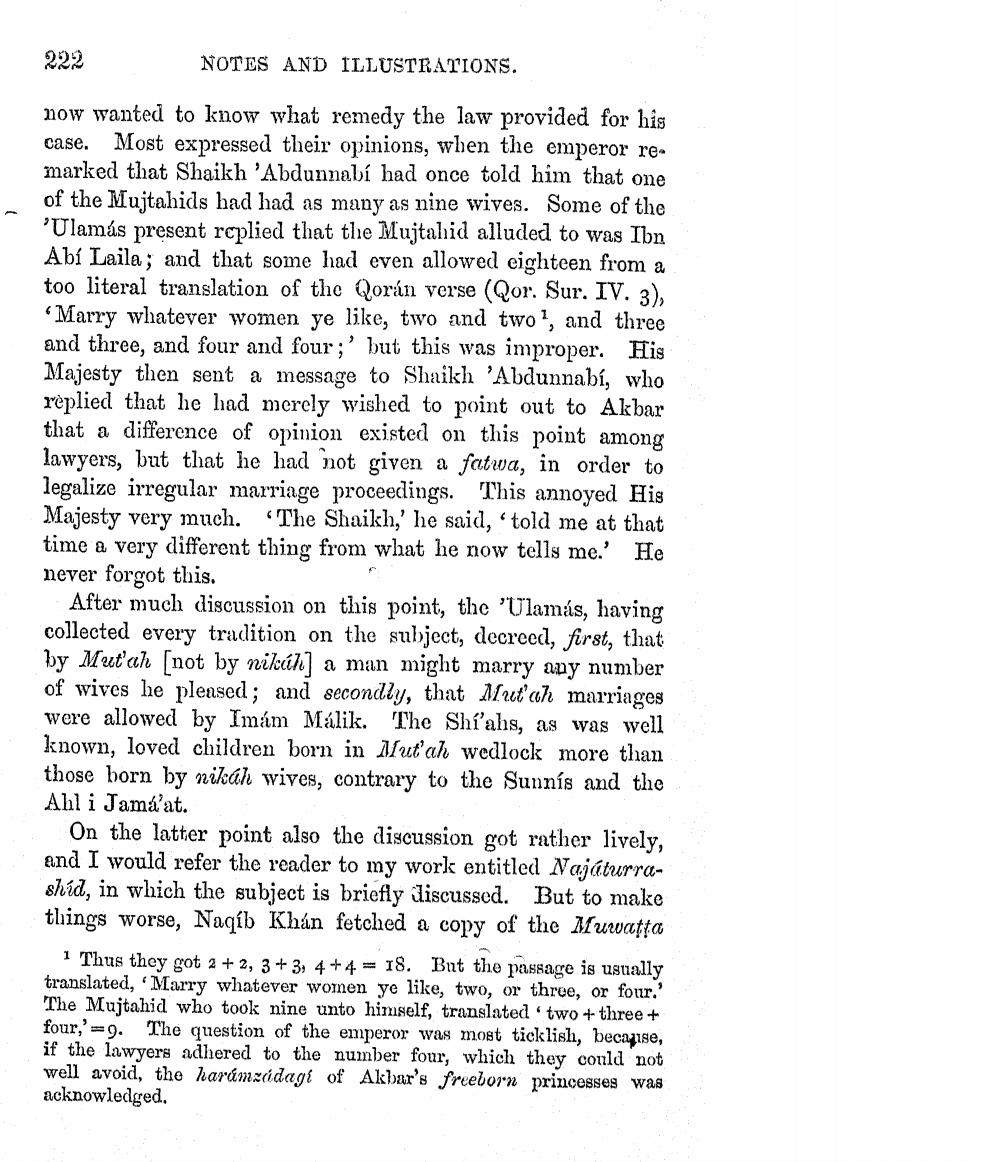________________
222
NOTES AND ILLUSTRATIONS.
now wanted to know what remedy the law provided for his case. Most expressed their opinions, when the emperor remarked that Shaikh 'Abdunnabí had once told him that one of the Mujtahids had had as many as nine wives. Some of the 'Ulamás present replied that the Mujtahid alluded to was Ibn Abí Laila; and that some had even allowed eighteen from a too literal translation of the Qorán verse (Qor. Sur. IV. 3), 'Marry whatever women ye like, two and two', and three and three, and four and four;' but this was improper. His Majesty then sent a message to Shaikh 'Abdunnabí, who replied that he had merely wished to point out to Akbar that a difference of opinion existed on this point among lawyers, but that he had not given a fatwa, in order to legalize irregular marriage proceedings. This annoyed His Majesty very much. "The Shaikh,' he said, 'told me at that time a very different thing from what he now tells me.' He never forgot this.
After much discussion on this point, the 'Ulamás, having collected every tradition on the subject, decreed, first, that by Mut'ah [not by nikún] a man might marry any number of wives he pleased; and secondly, that Mut'ah marriages were allowed by Imám Málik. The Shi'ahs, as was well known, loved children born in Mut'ah wedlock more than those born by nikáh wives, contrary to the Sunnís and the Ahl i Jama'at.
On the latter point also the discussion got rather lively, and I would refer the reader to my work entitled Najáturrashíd, in which the subject is briefly discussed. But to make things worse, Naqib Khán fetched a copy of the Muwatta
1 Thus they got 2 + 2, 3 + 3, 4 + 4 = 18. But the passage is usually translated, Marry whatever women ye like, two, or three, or four. The Mujtahid who took nine unto himself, translated two + three + four,'=9. The question of the emperor was most ticklish, becazise, if the lawyers adhered to the number four, which they could not well avoid, the harámzidagi of Akbar's freeborn princesses was acknowledged.




